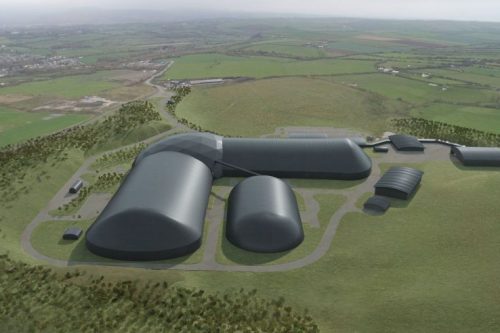High Court action in bid to overturn government’s approval of Cumbrian mine

Protest group Friends of the Earth is going to the High Court today (17 October) to try and obtain the advice and recommendation departmental officials gave to Michael Gove before he granted planning permission to a controversial new coal mine in Cumbria, in December last year.
The advice from officials, known as a ministerial submission, is an important document that could play a key part in Friends of the Earth’s legal challenge against Mr Gove’s decision to approve the Woodhouse Colliery under-sea mine mine. The legal challenge is expected to be heard next year.
Levelling Up Secretary Michael Gove based his decision partly on the report of the Planning Inspector, which has been published, which recommended planning permission be granted.
However, he will also have considered a separate briefing from his own officials in the Department for Levelling Up, Housing and Communities (DLUHC), who are also planning experts, which would have included their own recommendation on whether to grant permission. This briefing has not been published.
The ministerial submission is likely to have touched on a number of matters that are relevant to Friends of the Earth’s claim, including the developer’s claim that the mine would be net zero and the credibility of the carbon offsetting proposal, whether or not the scheme is consistent with legally binding UK climate targets and the Industrial Decarbonisation Strategy. It’s also likely to have considered the international impacts of granting permission for the mine.
At today’s interim hearing, Friends of the Earth will say the Government is under a duty to share the ministerial submission – a duty of candour – with the court and the parties. This requires parties to assist the court by ensuring that information relevant to the issues in the claim is drawn to the court’s attention, whether it supports or undermines their case.
The duty arises because public authorities, including government ministers, are engaged in a common enterprise with the court to fulfil the public interest in upholding the rule of law.
As such they are required to assist the court with full and accurate explanations of all the facts relevant to the issues which the court must decide and has been likened to a requirement on public authorities to defend litigation “with all the cards face upwards on the table”.
Ministerial submissions are regularly disclosed as part of the duty of candour and regularly help determine the outcome of a judicial review. That is because they reveal what was in the Secretary of State’s mind when taking the decision under challenge.
Friends of the Earth’s senior lawyer, Niall Toru, said: “The Government has disclosed the advice it was given by the planning inspector before Michael Gove gave the go ahead for a new coal mine in Cumbria – but key advice from his officials has not been disclosed.
“It would be very surprising if the ministerial submission failed to address key issues that are pertinent to our challenge, such as the developer’s claim that the mine would be ‘net zero’, the impact on UK carbon budgets and the adverse international impacts of granting permission.
“The Government has a duty to supply relevant information to both the court and the parties challenging its decisions – regardless of whether it supports or undermines its case.
“The ministerial submission must be disclosed.”
Leigh Day solicitor, Rowan Smith, said: “As the Levelling Up Secretary Michael Gove knows, for the past 20 years the international treaty, the Aarhus Convention, has given people the right to access information about the environment.
“The Aarhus Convention says the public should be provided with the reasons and considerations for decisions made about the environment. Friends of the Earth say this means Mr Gove should disclose the ministerial submissions about the Cumbrian coal mine that were given to him before he made his decision to grant permission for it to go ahead.”
The West Cumbria Mining proposal aims to supply the UK and international steel industry with coal, delivering around 500 local jobs as part of the £175m scheme.
It is estimated the Woodhouse Colliery under-sea mine could produce 65 million tonnes of metallurgical coal in its proposed lifetime from 2028 to 2049.
West Cumbria Mining says the mine will be the world’s first ‘net zero’ coal mine of its kind, as they will offset the emissions from the construction phase.








